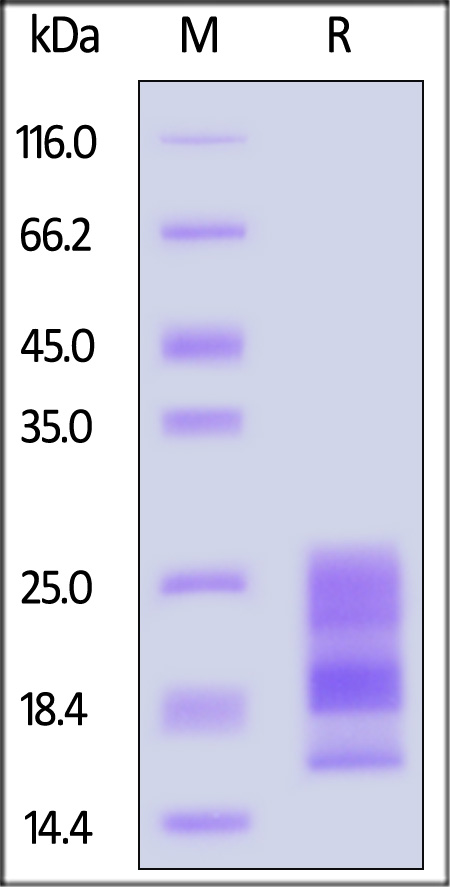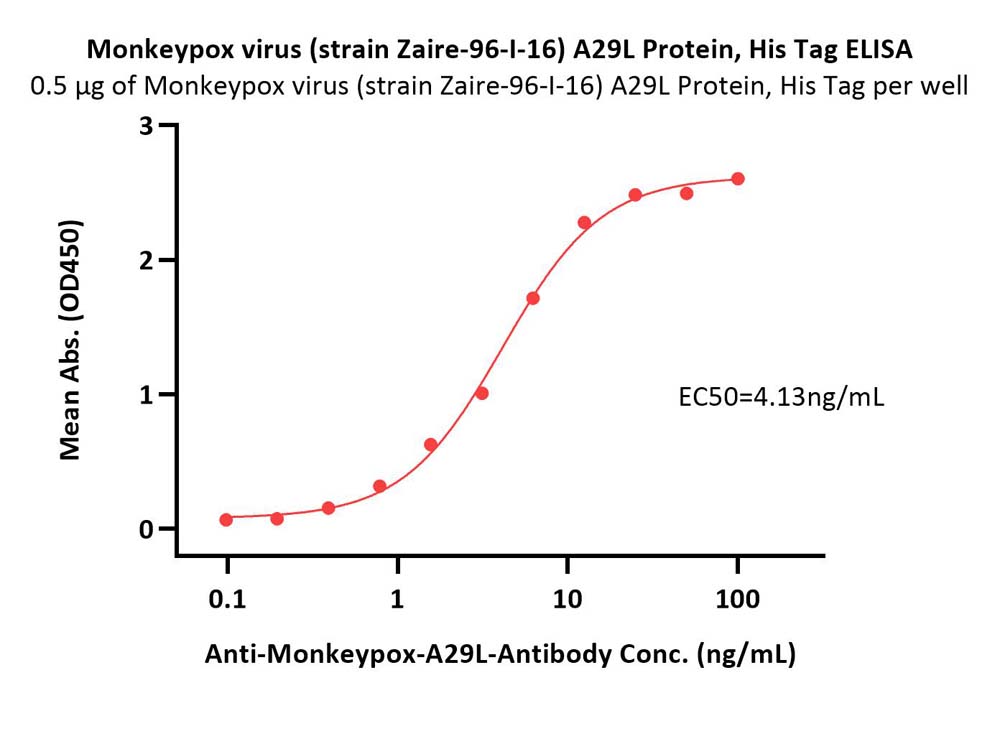分子别名(Synonym)
A29L (MPXV)
表达区间及表达系统(Source)
Monkeypox virus (strain Zaire-96-I-16) A29L Protein, His Tag (A2L-M52H3) is expressed from human 293 cells (HEK293). It contains AA Met 1 - Glu 110 (Accession # Q77HM6).
Predicted N-terminus: Met 1
Request for sequence
蛋白结构(Molecular Characterization)

This protein carries a polyhistidine tag at the C-terminus.
The protein has a calculated MW of 14.4 kDa. The protein migrates as 16 kDa,18-20 kDa and 22-25 kDa under reducing (R) condition (SDS-PAGE) due to glycosylation.
内毒素(Endotoxin)
Less than 0.1 EU per μg by the LAL method.
纯度(Purity)
>90% as determined by SDS-PAGE.
制剂(Formulation)
Lyophilized from 0.22 μm filtered solution in PBS, pH7.4 with trehalose as protectant.
Contact us for customized product form or formulation.
重构方法(Reconstitution)
Please see Certificate of Analysis for specific instructions.
For best performance, we strongly recommend you to follow the reconstitution protocol provided in the CoA.
存储(Storage)
For long term storage, the product should be stored at lyophilized state at -20°C or lower.
Please avoid repeated freeze-thaw cycles.
This product is stable after storage at:
- -20°C to -70°C for 12 months in lyophilized state;
- -70°C for 3 months under sterile conditions after reconstitution.
电泳(SDS-PAGE)

Monkeypox virus (strain Zaire-96-I-16) A29L Protein, His Tag on SDS-PAGE under reducing (R) condition. The gel was stained with Coomassie Blue. The purity of the protein is greater than 90%.
活性(Bioactivity)-ELISA

Immobilized Monkeypox virus (strain Zaire-96-I-16) A29L Protein, His Tag (Cat. No. A2L-M52H3) at 5 μg/mL (100 μL/well) can bind Anti-Monkeypox-A29L-Antibody with a linear range of 0.1-13 ng/mL (QC tested).
Protocol
背景(Background)
Monkeypox is a rare zoonosis caused by monkeypox virus, which has become the most serious orthpoxvirus and consists of complex double stranded DNA. The cases are mostly in central and western Africa. The pathogenesis of monkeypox is that the virus invades the body from respiratory mucosa, multiplies in lymphocytes, and incurs into blood producing transient venereal toxemia. after the virus multiplies in cells, the cells can invade the blood and propagate to the skin of the whole body, causing lesions. A29L binds to cell surface heparin to promote fusion of viral membrane with host plasma membrane.























































 膜杰作
膜杰作 Star Staining
Star Staining











